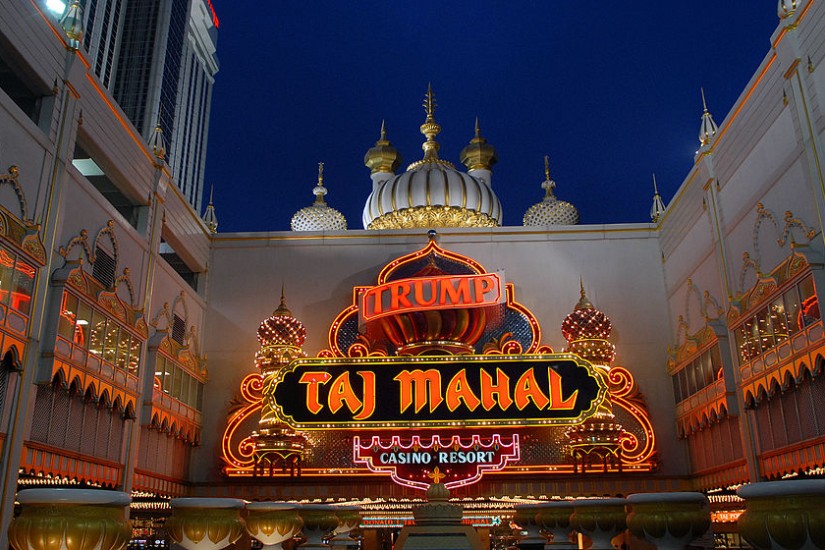On the campaign trail, Trump has been coy about his past dealings with unsavory characters. But he couldn’t resist a Trump-style boast: "I've known some tough cookies over the years," he told Chris Matthews in February. "I've known the people that make the politicians you and I deal with every day look like little babies."
Actually, there’s an old FBI memo that puts a different spin on Trump’s attitude about the mob. It is a classic example of a young but already shrewd Trump hard at work. It was written in 1981 by a veteran Bureau agent, reflecting meetings that he and a fellow FBI official were having with the 35-year-old developer from Queens, then a rising star in New York's business firmament. The topic of the meetings was Trump's pending plunge into the Atlantic City casino industry. And while the memo was written in the stilted language of FBI-bureaucratese, Trump's wide-eyed comments were recorded with what seems like barely suppressed amusement. "Trump advised agents that he had read in the press and media and had heard from various acquaintances that Organized Crime elements were known to operate in Atlantic City," the memo states.
This was a little like saying he had heard that there had once been a man named Al Capone who failed to pay all of his taxes. But Trump, presumably shaping an argument he might need somewhere down the road, pressed on: "Trump advised that he wanted to build a casino in Atlantic City but he did not wish to tarnish his family's name inadvertently."
There were a few reasons why the FBI agents may have found this claim slightly disingenuous.
For starters, at the time Trump’s mentor on issues of politics and business was Roy Cohn, a lawyer whose other clients included a passel of mobsters, among them the bosses of the Genovese and Gambino crime families. Cohn, who served as Senator Joseph McCarthy's chief witch hunter before going into private practice, operated out of a townhouse on East 68th Street where clients Anthony "Fat Tony" Salerno and Paul "Big Paul" Castellano were regular visitors. Besides getting advice on their legal problems, as a former secretary later recalled to Wayne Barrett in his 1992 book, “Trump: The Deals and the Downfall,” the visits by the mob titans to their lawyer's office allowed them to talk shop without having to worry about FBI bugs. Cohn told a reporter that Trump called him “fifteen to twenty times a day, asking what’s the status of this, what’s the status of that,” according to Barrett’s book.
Another reason the FBI might not have taken Trump’s professed ignorance at face value was that Trump had already brushed up against his share of wiseguys in New York's gritty construction business, without apparent concern.
